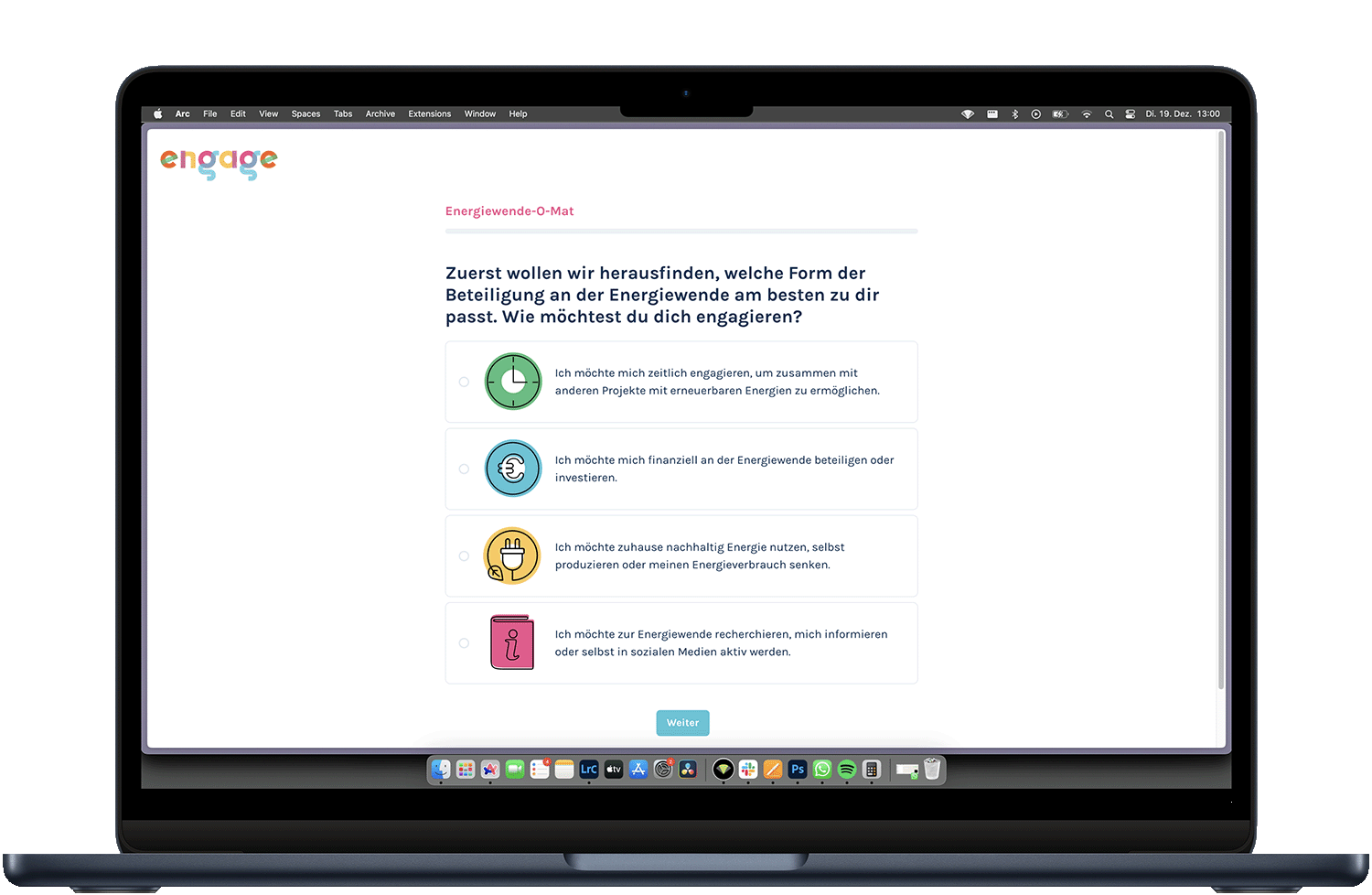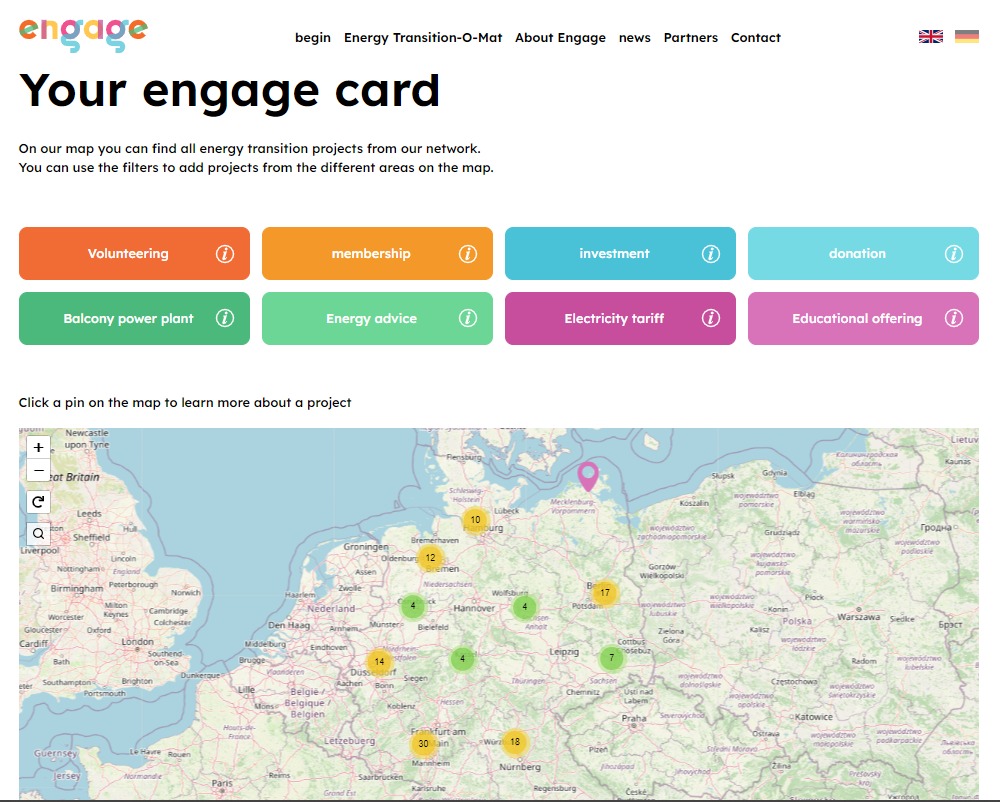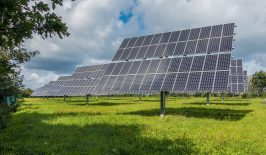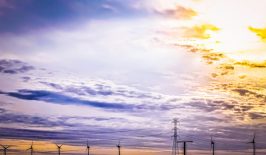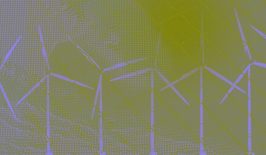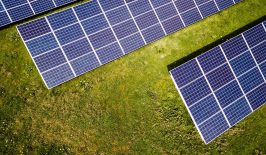When elections are held anywhere in Germany, many people use the “Wahl-O-Mat” (Choose-O-Mat) to help them choose a party. The Engage project has now modified this concept to motivate users to participate in the energy transition. However, the use of the Energiewende-O-Mat also fulfils an overarching purpose.
What is the energy transition?
In order to mitigate the consequences of man-made climate change, many experts recognise the urgent need for a change in energy production. Even in 2023, the majority of energy will still be sourced from fossil fuels, which produce large amounts of CO2 that damage our environment.
Although the share of tidal power, wind power and solar energy in electricity consumption has risen to over 40 percent in the last 20 years, this share is by no means sufficient. An important goal for the future is therefore to focus more on renewable energies. There is also a need for digital solutions such as effective energy storage or concepts such as energy sharing so that these can be utilised as efficiently as possible.
Society has become aware of the need for an energy transition. According to data from the EU, the majority of Europeans (84 percent) support the goals of the energy transition. However, participation in the realisation of these goals is still too low. And this is precisely where the Wahl-O-Mat comes into play.
The Energiewende-O-Mat uses a familiar concept
The online tool Energiewende-O-Mat (Energy transition-O-Mat) is based on the Wahl-O-Mat (choose-o-mat), developed by the German Federal Agency for Civic Education.
What is the ‘Wahl-O-Mat’?
The Wahl-O-Mat is the German version of the Dutch “StemWijzer” that was developed by the Amsterdam “Instituut voor Publiek en Politiek/IPP”. It offers Internet users a selection of 30 to 40 propositions, such as ‘All public buildings should be legally designated as non-smoking areas’ or ‘The VAT should be increased’.Users of the tool are prompted to express their stance on these propositions by choosing from three buttons: ‘agree’, ‘disagree’ or ‘neutral’. Users can choose to skip specific statements. After casting votes on all items, users have the option to highlight propositions they deem significant, granting them special importance in the final calculation. The Wahl-O-Mat then computes the distances between the voter’s positions and those of the political parties, ultimately revealing the party with the smallest distance as the “result” or best match.
It guides users through a step-by-step process, whereby at the end of this process, users see there are no political parties that best meet the interests of the users. Instead, the Energiewende-O-Mat proposes projects in which users can participate.
The Energiewende-O-Mat works using the same principle. According to the developers, the aim is to relieve users of the “tedious research”, enabling them to start working towards the energy transition as quickly as possible. Alternatively, Engage also offers an overview of all energy transition projects from its network. A Google Maps integration helps interested parties to find projects in their area.
Data helps to develop further projects
Engage uses the data generated from the responses and participation in the projects for further work. In this regard, the project states that the research results will be used “to utilise and expand the participation potential of social innovations in the energy transition”. The Institute for Climate Protection, Energy and Mobility is one of the organisations involved in the project, and Engage is also funded by the Federal Ministry for Economic Affairs and Climate Protection.

